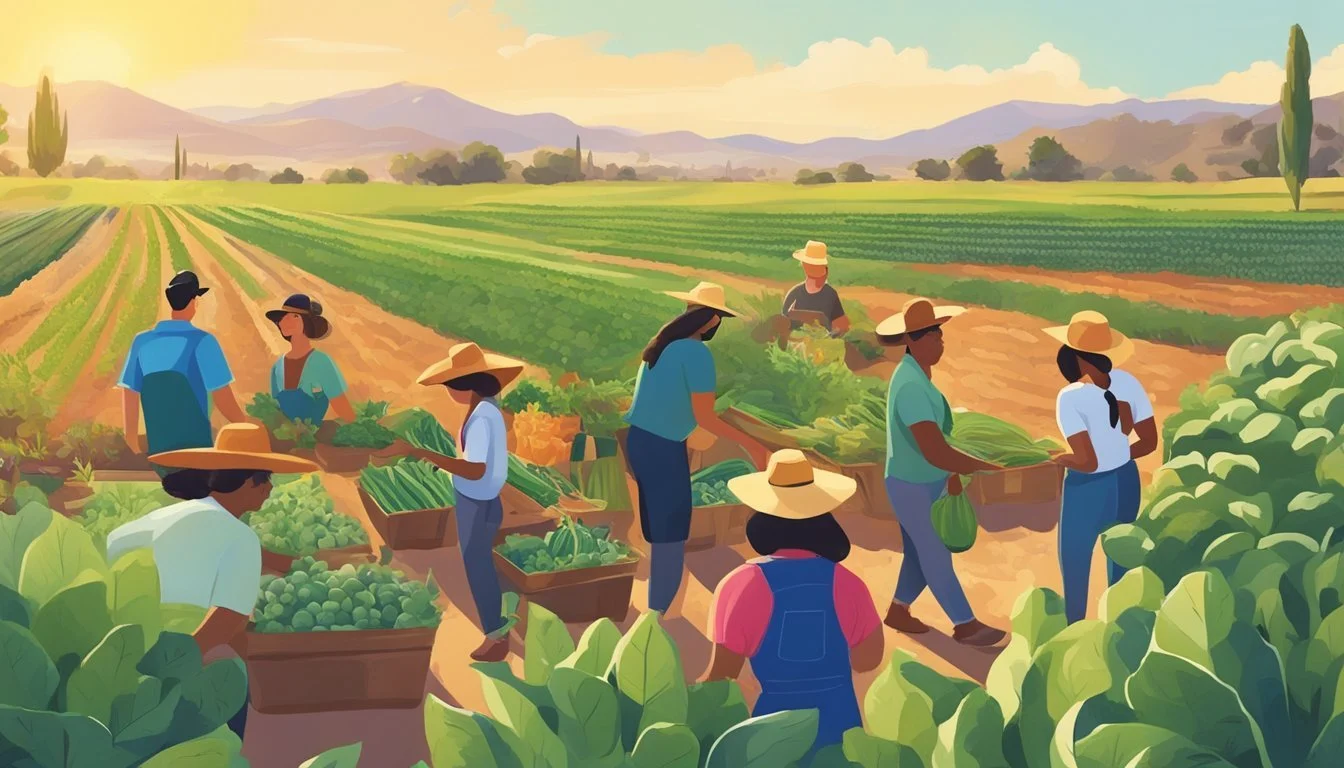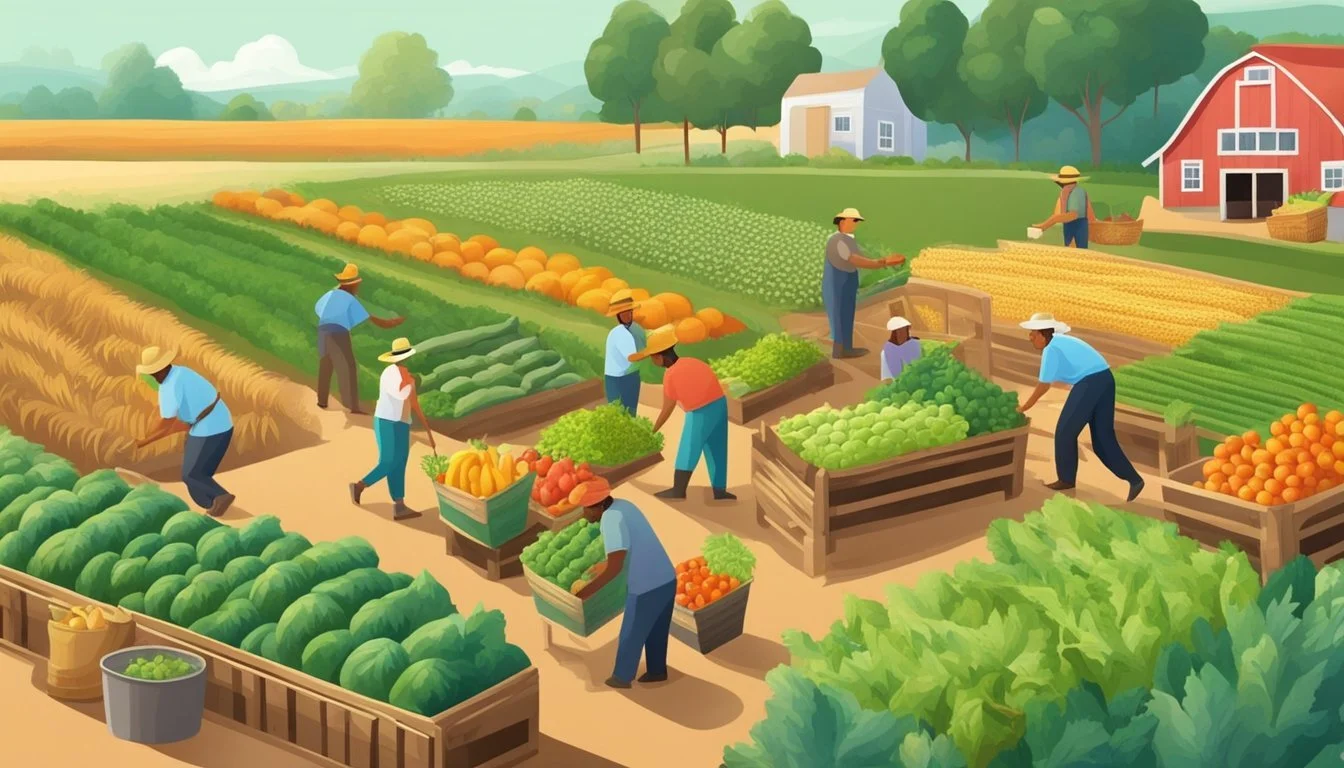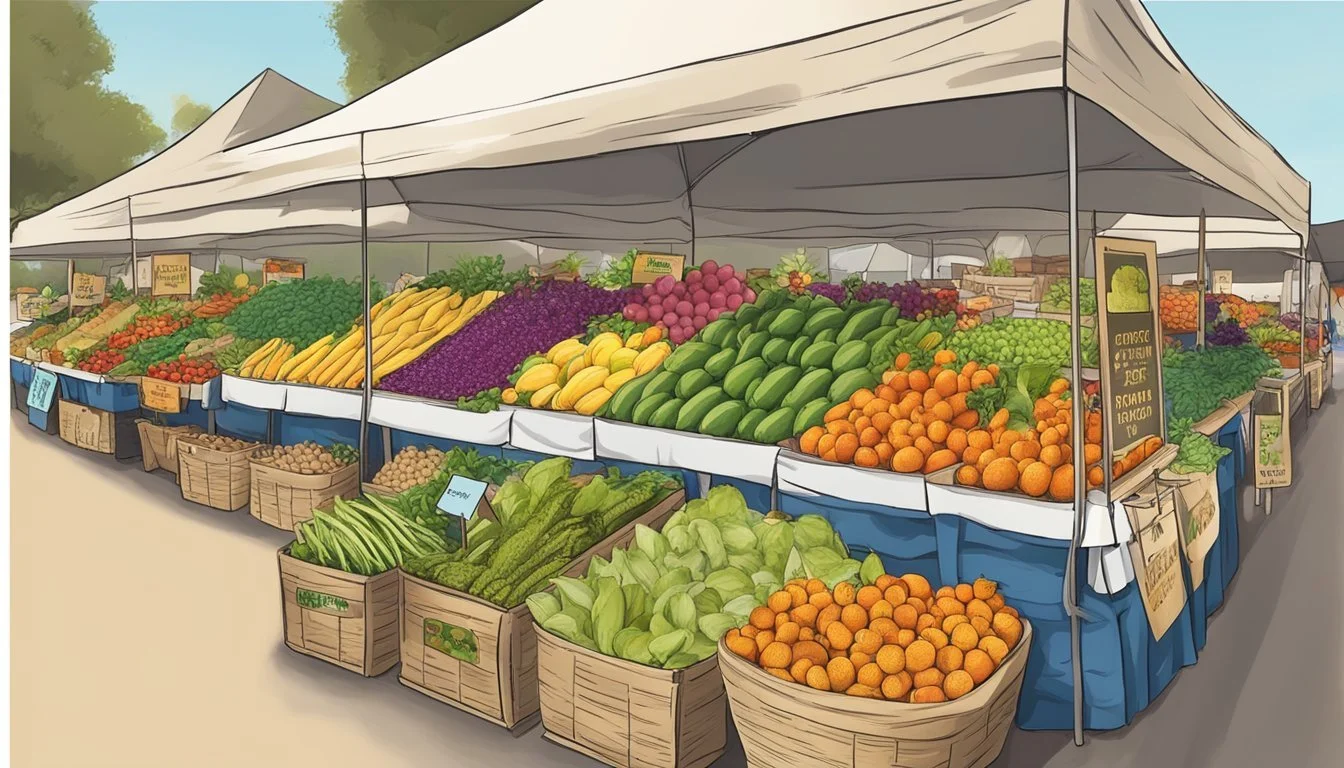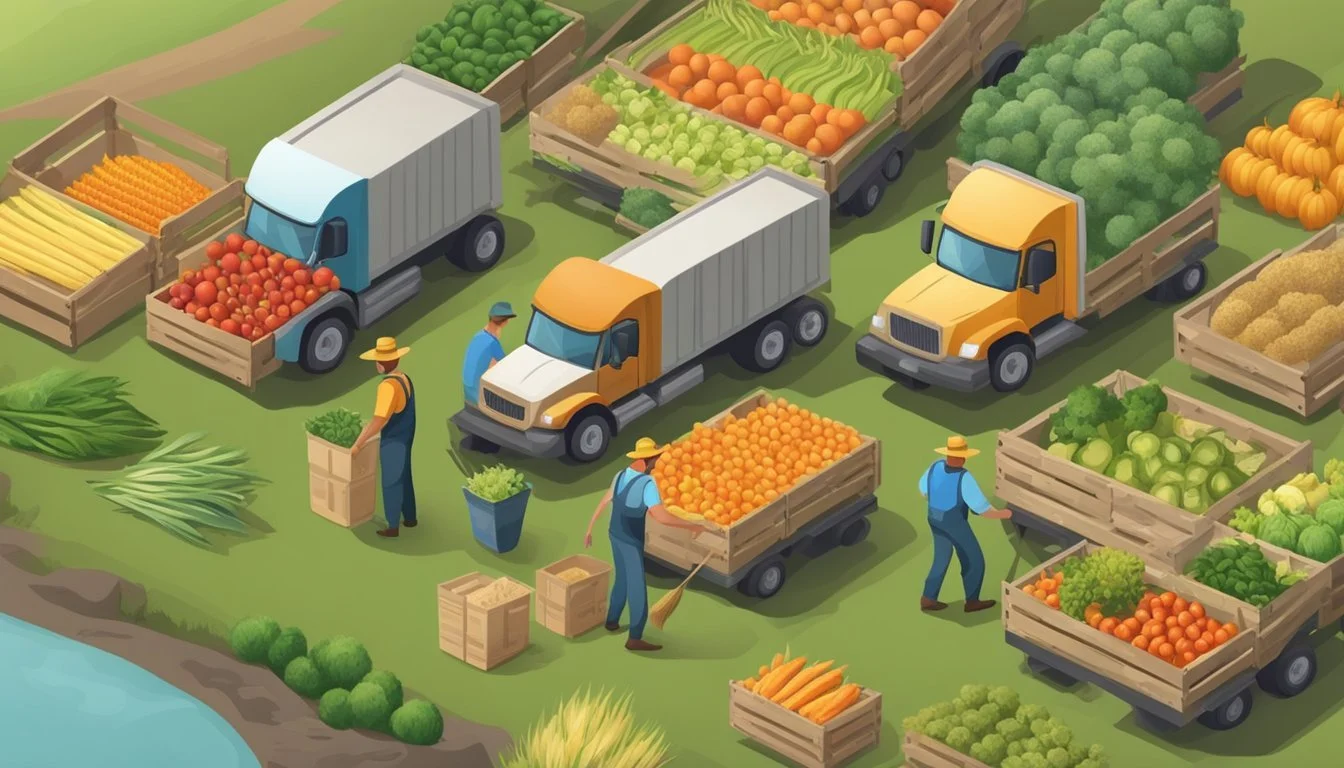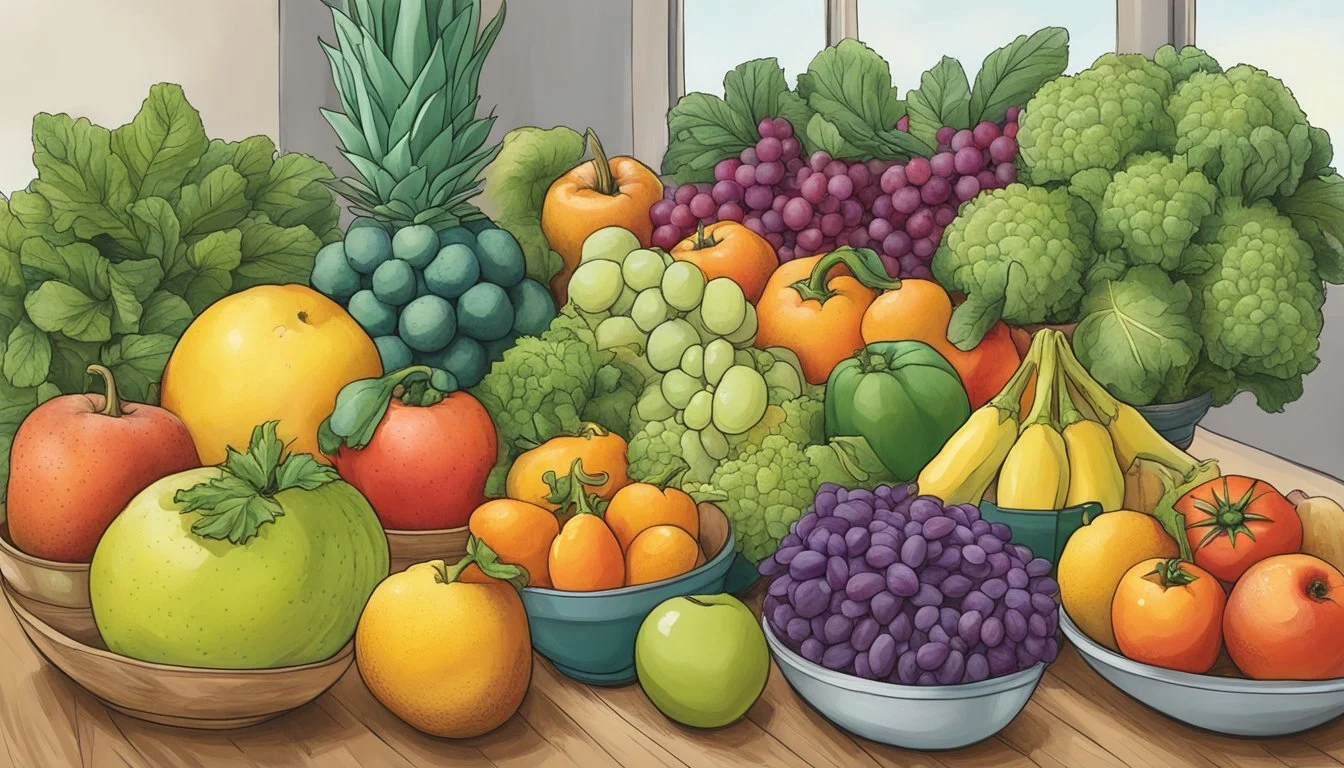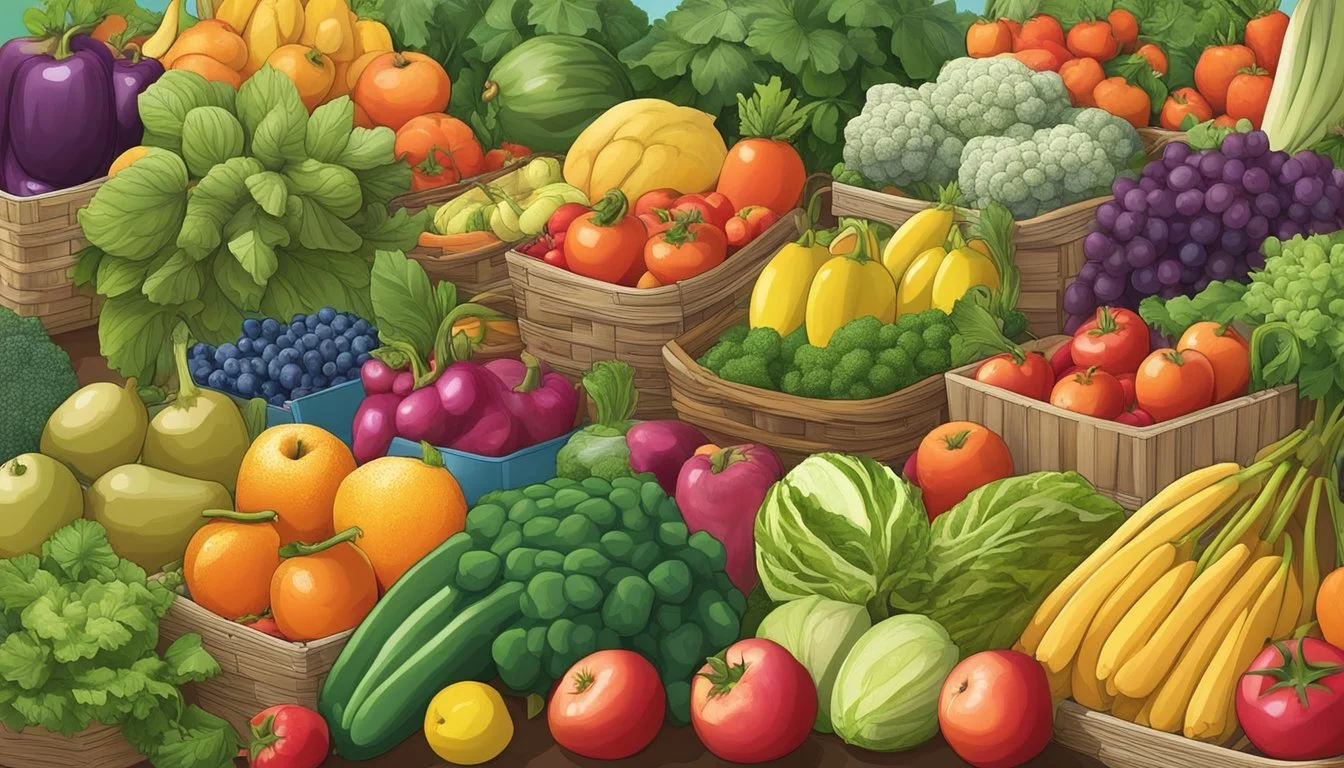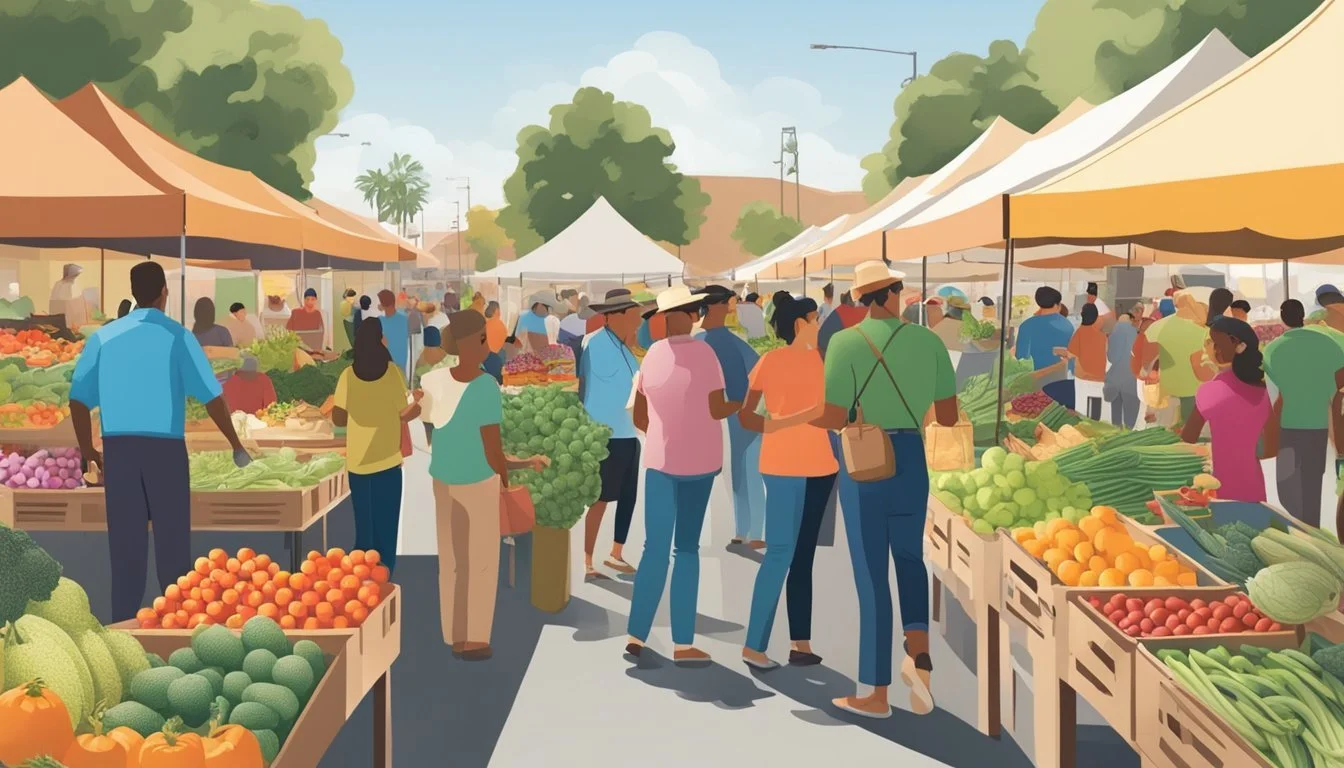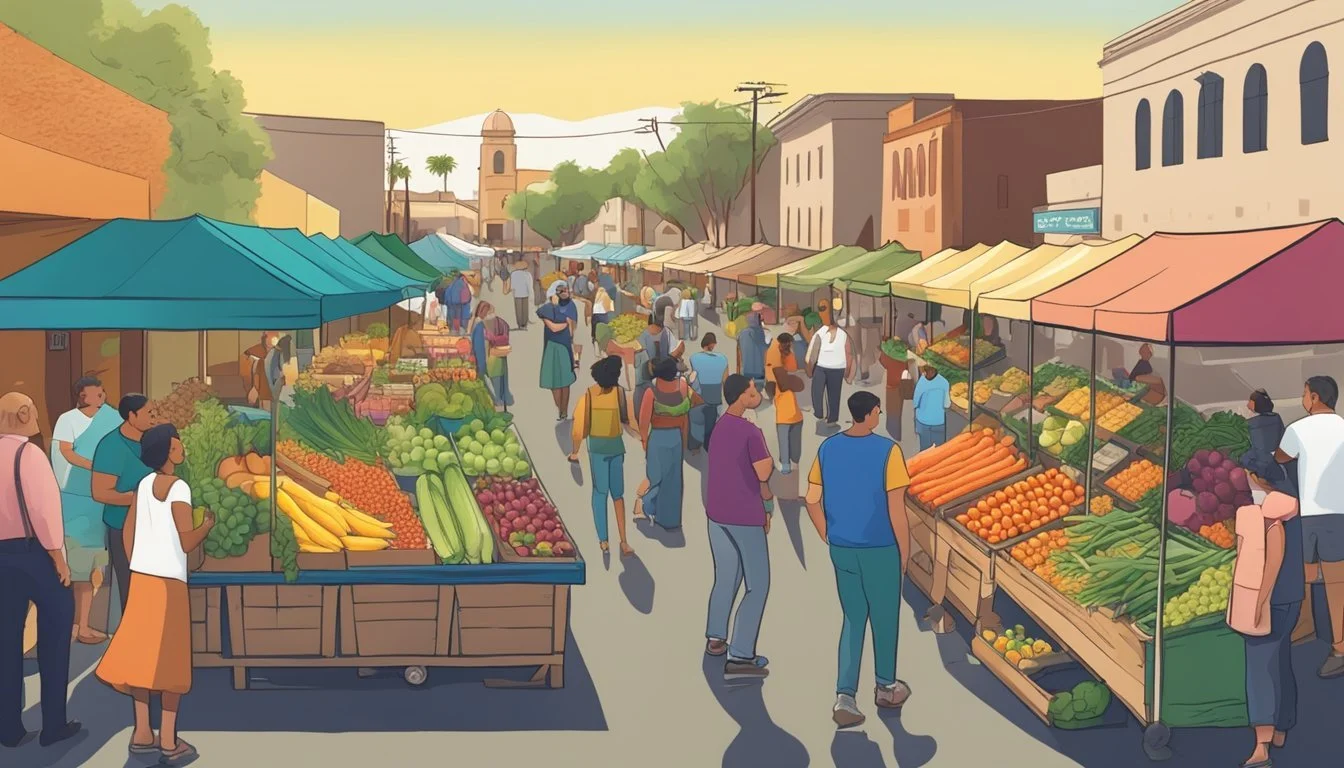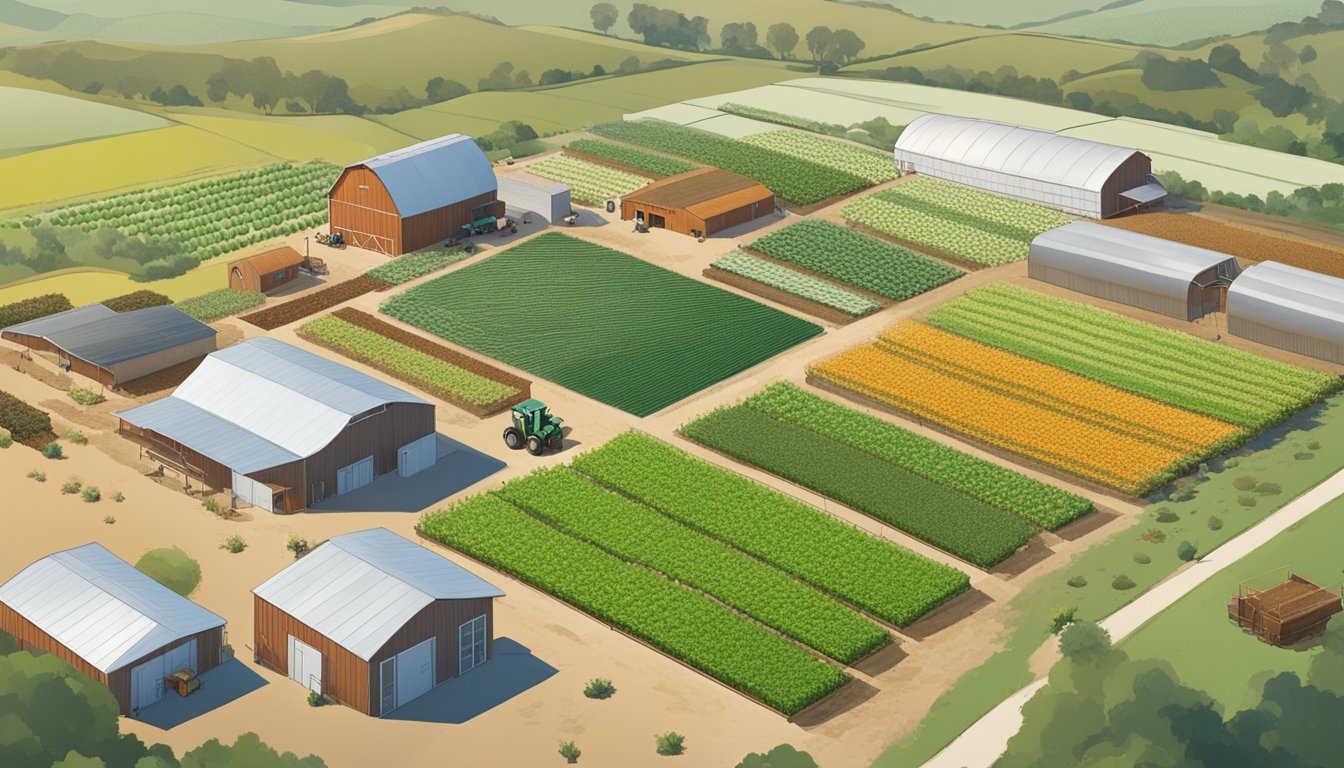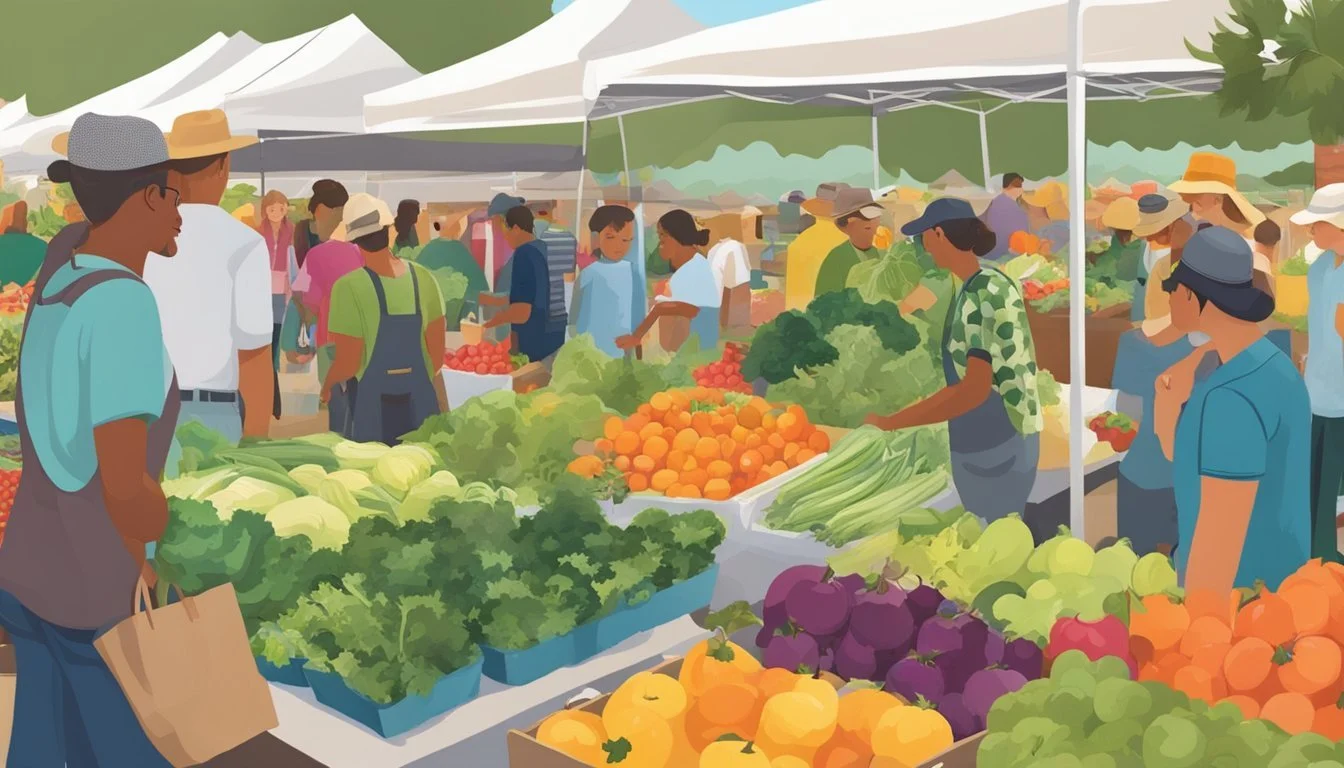Community Supported Agriculture (CSA) in El Cajon, CA
A Guide to Local Farm Shares
Community Supported Agriculture, commonly referred to as CSA, is a farming model that has taken root in El Cajon, California, just as it has in many other parts of the nation. This model for food distribution represents a partnership between local farmers and community members, enabling consumers to subscribe to a share of the harvest from regional farms. By doing so, members receive fresh, locally-grown produce on a regular basis, usually weekly, directly from the farm or via specified pickup locations within their community.
In El Cajon, the CSA model benefits both local consumers and farmers. Consumers enjoy the access to fresh, often organic, fruits and vegetables, while farmers gain a predictable income stream and a dedicated market for their produce. The advance payment from CSA members helps farmers with the up-front costs of planting and harvesting, providing financial stability. Products offered through these programs in El Cajon typically include a variety of seasonal produce, with some CSAs also offering options for additional items like eggs, honey, and artisanal products.
The focus on local sourcing through CSAs in El Cajon underscores a commitment to sustainable agriculture and supports the local economy. It fosters a closer connection between consumers and the source of their food, often providing insight into production methods and the opportunity to learn about new vegetables and how to prepare them. For a city like El Cajon, embracing CSA programs is not just about the fresh produce, but also about building community and contributing to the sustainability of local farms.
What Is Community Supported Agriculture (CSA)?
Community Supported Agriculture (CSA) represents a model of food production and distribution that directly links consumers to local farms. Through CSA programs, individuals can purchase a "share," which typically involves receiving a portion of seasonal produce on a regular basis throughout the farming season.
CSA Program Fundamentals
In a CSA program, members buy a share at the beginning of the growing season and in return receive a portion of the farm’s produce. This typically includes a range of vegetables and sometimes fruits, herbs, and even dairy or meat products, depending on the farm’s offerings. These shares are often delivered on a weekly or bi-weekly basis.
Season Length: Varies, but often between 20-24 weeks
Share Types: Many CSAs offer different sizes or types of shares to suit different household needs or preferences.
Pick-up/Delivery: Members pick up their shares at designated locations or the farm itself, or some CSAs offer home delivery.
Benefits of CSA Membership
Members of a CSA enjoy multiple benefits. They gain access to fresh, often organic, and local produce. This not only supports their health due to the nutrient-rich foods but also benefits the environment by reducing food miles. Additionally, CSA members often have the unique opportunity to form a relationship with the farm and the individuals growing their food, fostering a stronger sense of community.
Health and Quality: Fresh, locally-sourced produce is typically higher in nutrients and is often grown using organic methods.
Supporting Local Economy: Funds go directly to local farmers, not middlemen, ensuring the vitality of local agriculture.
By participating in a CSA, members take part in a seasonal food experience and actively contribute to the sustainability of local farms.
The Role of Farmers in CSA
Community Supported Agriculture (CSA) relies heavily on the dedication and expertise of local farmers who implement sustainable farming practices to provide for the community. Their role is central to the CSA model, ensuring that members receive healthy, locally grown produce while supporting family-operated farms.
Importance of Local Farmers
Local farmers are integral to the CSA model in El Cajon, CA. They are typically small-scale producers who prioritize sustainable and regenerative farming techniques. These practices not only contribute to the environmental health of the region but also ensure that the produce is fresh and nutritious. By avoiding synthetic herbicides and pesticides, local farmers align with organic practices that many consumers value for their health benefits. Additionally, their involvement in CSAs facilitates a direct connection with the community, fostering transparency and trust in the food system.
Farmer commitments in CSA:
✅ Employ regenerative growing practices
✅ Maintain organic standards
✅ Prioritize local community health
✅ Uphold sustainable farm operations
Family Farm Contributions
Family farms bring a personal touch to CSAs. These small, often multi-generational operations contribute not just to the local economy but also to the preservation of agricultural traditions. Family farms in El Cajon understand the importance of soil health and biodiversity, applying regenerative practices that enhance both yield and the quality of their produce. Due to their size, family farms can focus on detailed care of their crops, ensuring the delivery of high-quality fruits and vegetables to CSA members.
Advantages of family farm produce in CSAs:
Crafted with personalized attention
Supports the retention of farming heritage
Promotes a smaller carbon footprint compared to larger, industrial farms
By investing their time and resources, farmers and family farms play an indispensable role in the success of CSAs, providing community access to wholesome, sustainable, and responsibly-produced food.
Exploring CSA Options in El Cajon
El Cajon residents have several CSA programs to choose from, each offering a unique selection of locally-grown and seasonal produce such as strawberries and flowers. These programs enable consumers to subscribe to regular deliveries of fresh CSA boxes.
Choosing the Right CSA Program
When selecting a CSA program in El Cajon, individuals should consider the variety and size of the shares available. A typical CSA share might include a mix of vegetables, fruits, and sometimes additional products like flowers. Here is a brief overview to help residents of El Cajon decide on the right CSA program for their needs:
Size of Shares: CSA programs usually offer different sizes of shares to cater to varied household sizes and consumption needs. One may encounter small shares suitable for individuals or couples, and larger shares for families.
Size Option Ideal for Price Range (Weekly) Small Share 1-2 people Around $15 Large Share 3 or more people Around $25
Subscription Terms: Subscriptions may vary in terms of duration and flexibility. Look for options that align with your schedule and commitment preferences.
Subscription Type Duration Notes Quarterly 13 weeks Often billed in one installment. Monthly 4 weeks Recurring billing; cancel any time.
Delivery and Pickup: Determine whether the CSA you're interested in offers delivery to your doorstep or if there is a designated pickup location that you must visit weekly.
When choosing a CSA program, it's important to inquire about the types of produce included, their growing practices—whether they are pesticide-free or organic—and what additional items (like flowers or specialty crops) might be included in the CSA boxes. With sustainable and local agriculture becoming more prevalent, El Cajon provides its residents with opportunities to support local farmers while enjoying the benefits of fresh, seasonal food.
From Farm to Table: The CSA Process
Community Supported Agriculture in El Cajon, CA, offers consumers a way to purchase fresh produce directly from local farmers. This model emphasizes a partnership between consumers and farms, where members receive fresh, locally grown produce on a regular basis.
Harvesting and Distribution
Harvesting in the CSA model is carefully timed so members receive the freshest produce possible. Crops are typically harvested the same day they are distributed to ensure peak flavor and nutrition. Farmers in El Cajon may schedule harvests to correspond with the bi-weekly or weekly distribution days.
Bi-weekly/Weekly Shares: Farms typically offer the option to receive shares of produce either bi-weekly or weekly, allowing members to choose according to their household needs.
Distribution in a CSA can take multiple forms, providing flexibility for members. Most commonly, the process includes either a pickup system at designated locations, such as local farmers markets or home delivery service.
Pickup Options:
Farmers Market: Members often collect their shares from a booth at a local farmers market, adeptly combining their CSA pickup with other market activities.
Farm Pickup: Some CSAs allow for on-site pickup, giving members a chance to visit the farm.
Home Delivery: For added convenience, many CSAs in El Cajon also offer home delivery services, ensuring that even those unable to travel to pickup points can enjoy fresh produce.
CSAs represent a cycle of support, sustainability, and community engagement, as consumers invest in their local farmers, and in return receive nutritious, fresh produce straight from farm to table.
Food Variety and Seasonality
Community Supported Agriculture (CSA) in El Cajon provides an array of fresh, organic produce that varies according to the season. Subscribers can expect weekly deliveries consisting of fruits, vegetables, and sometimes eggs or meat.
Typical CSA Offerings in El Cajon
CSAs in El Cajon typically offer a diverse selection of produce throughout the year. Members receive weekly boxes containing a variety of fruits and vegetables that are locally grown and in season. Organic produce is a common feature, ensuring that subscribers enjoy high-quality, pesticide-free food.
Spring: Subscribers can savor a range of green leafy vegetables like kale and lettuce, along with the sweetness of strawberries and the tang of navel oranges.
Summer: The warm months are perfect for ripe tomatoes, crunchy cucumbers, succulent corn, and a variety of citrus fruits.
Fall: This season brings the harvest of apples and the continued enjoyment of fresh vegetables.
Winter: Even in the cooler months, subscribers receive a steady supply of produce, including leafy greens and citrus fruits like oranges.
Additionally, many CSAs offer extras such as fresh eggs or locally raised meat as optional add-ons to their produce boxes. The weekly baskets may vary, reflecting what is currently being harvested, thereby giving members the freshest options available.
Health and Nutritional Benefits
Community Supported Agriculture (CSA) initiatives offer tangible health and nutritional benefits through their supply of fresh, locally-sourced produce. Members typically receive a diverse array of organic vegetables and fruit, promoting the intake of whole food and supporting a healthy diet.
Eating Locally Grown Foods
CSAs in El Cajon provide locally grown foods which are often delivered to members within a short time after harvest. This can lead to higher nutrient retention in the produce compared to items that spend extended periods in transit or on store shelves. The availability of fresh vegetables and fruit from local CSAs ensures that consumers have access to produce at peak freshness, which is essential for maximum flavor and nutritional value.
Freshness: CSA produce is often harvested at the optimal time, ensuring that it retains more vitamins and minerals.
Organic choices: Many CSAs favor organic farming methods that avoid the use of synthetic pesticides, which may be better for one's health.
Health-promoting: Fresh, whole food consumption is linked with numerous health benefits, including reduced risk of chronic diseases.
Individuals who partake in CSA programs are encouraged to eat seasonally, which can introduce them to a wider variety of produce and subsequently, a wider range of nutrients. The direct farm-to-consumer relationship fosters a deeper understanding of where food comes from, potentially leading to more health-conscious food choices.
Impact of CSA on Local Economy
Community Supported Agriculture (CSA) in El Cajon, CA contributes significantly to the local economy by fostering direct financial support to farmers and stimulating local agricultural activity.
Supporting El Cajon’s Agricultural Community
Community Supported Agriculture models in El Cajon directly infuse capital into the local economy through the subscription-based revenue for local farmers. By paying for produce up front, El Cajon residents provide much-needed cash flow to farmers, which can help cover the upfront costs of the planting season. This financial model reduces the economic risks for local growers and often results in better crop yields and a more sustainable farming business.
Nearby farmers' markets in San Diego County, such as those in Vista, National City, La Mesa, Lakeside, and Escondido, further amplify the economic impact. These markets allow El Cajon farmers to sell their CSA shares and additional produce to a broader community, increasing the reach of local agricultural products.
Moreover, by keeping the spending within the community of El Cajon and its surrounding areas like Ramona, Point Loma, North Park, Oceanside, and others, CSAs help to create and maintain jobs not only on farms but also in related sectors, such as transportation and marketing.
The network created by the CSA model also enables farmers from El Cajon to collaborate with those in nearby areas, fostering a regional agricultural economy that benefits all of San Diego County. This network support can take the form of shared resources, knowledge exchange, and cooperative marketing efforts. Such collaboration not only reinforces the local food system but also positions San Diego County as an innovative leader in sustainable agriculture.
CSA Membership and Subscriptions
Community Supported Agriculture in El Cajon offers a collaborative approach where members subscribe to receive fresh, locally-grown produce directly from their farmers. This relationship fosters a commitment to sustainable agriculture and community enrichment.
Understanding Different CSA Models
In El Cajon, one becomes a member of a CSA through a subscription, where they purchase shares of the farm's output. A share typically consists of a weekly or bi-weekly box of seasonal produce. There are variations in share sizes, commonly referred to as small, regular, or large, catering to different household needs or preferences. Some farms allow for more personalization, giving their members the ability to choose the produce in their share, while others pre-select the items based on what's seasonally available.
Payment and Subscription Details
The payment structure for CSA memberships can vary, but generally, members commit either on a quarterly or annual basis. Payments are usually made upfront to cover the period of subscription, serving as a way for the farm to fund the upcoming season's operations. This financial commitment demonstrates the members' support for their local farmers and provides a sense of stability for the farming operations. Here are the typical payment and subscription options one might encounter in El Cajon:
Weekly Subscription: Provides a share of produce each week.
Bi-weekly Subscription: Offers a share of produce every other week, which is suitable for smaller households or those with less consumption.
Seasonal Payment: Membership fees paid seasonally in advance.
Members receive their share of produce at designated pickup locations, or in some cases, direct delivery options are available. It's essential for prospective members to understand these details to choose a subscription that best fits their lifestyle.
Best Practices for CSA Members
When joining a Community Supported Agriculture (CSA) program, members play a crucial role in the success and sustainability of local farming. Proper storage and preparation of the fresh produce received can enhance the value and experience of their CSA membership.
Storage and Cooking Tips
Storage Tips for Fresh Produce:
Leafy greens: Store in a plastic bag with a paper towel to absorb excess moisture. They are best kept in the crisper drawer of the refrigerator.
Root vegetables: Remove any tops to prolong freshness and store in a cool, dark place or in the refrigerator.
Herbs: Wrap in a damp paper towel and store in a resealable bag in the fridge.
Cooking Tips for CSA Members:
Seasonal versatility: Members should explore recipes that highlight the flavors of the season. Fresh, seasonal produce often requires minimal seasoning to taste delicious.
Preservation methods: Members can consider preserving excess produce through pickling, canning, or freezing to extend the lifespan and variety of their food options.
By following these specific tips, CSA members can ensure they maximize the longevity and flavor of their fresh produce. Handling and preparing food with care allows members to fully enjoy the fruits of their investment in local agriculture.
Sustainable Farming Practices
Community Supported Agriculture (CSA) in El Cajon, California, encompasses a commitment to practices that are better for the environment and local community. Specifically, these practices involve organic and regenerative agriculture, focusing on soil health and ecological balance.
Organic and Regenerative Agriculture in CSAs
CSAs in El Cajon often adopt organic farming methods, which prohibit the use of synthetic fertilizers and pesticides. By adhering to these standards, sustainable farms play a significant role in preserving the environment. Instead of chemicals, they use natural alternatives like compost and worm castings to enrich the soil, promoting the growth of nutritious and uncontaminated produce.
In addition to organic practices, many CSAs are shifting towards regenerative growing practices which go beyond merely avoiding harmful substances. Regenerative agriculture involves a variety of strategies aimed at actively restoring soil health and promoting biodiversity. Techniques include:
Crop rotation: Planting different types of crops in succession to improve soil nutrients and break pest cycles.
Cover cropping: Using certain plants to protect and nourish the soil during off-seasons.
Reduced tillage: Limiting soil disruption to maintain soil structure and carbon sequestration.
These sustainable farming strategies not only support a thriving ecosystem but also result in healthier produce for the community members who invest in CSA shares. By fostering a resilient and eco-conscious agricultural system, CSAs in El Cajon contribute to a more sustainable future, both locally and globally.
CSA Community Engagement
Community Supported Agriculture (CSA) in El Cajon, California, actively cultivates community engagement and education through a variety of events. These initiatives are essential for fostering a deeper understanding and stronger connection between the community and local food systems.
Events and Education
CSAs in El Cajon strive to educate community members on sustainable agriculture practices through hands-on experiences. They often organize farm visits and harvest days, where individuals can directly engage with the farming process and learn about the benefits of supporting local farms.
Additionally, workshops on topics such as organic farming, seasonal cooking, and preserving the harvest are periodically offered, providing valuable skills and knowledge to participants. By taking part in these workshops, individuals gain practical education that can positively impact their daily lives and the community's overall sustainability.
Local farmer's markets, partnered with various CSAs, serve as social hubs where attendees can meet the farmers, ask questions, and gain insight into the produce they're purchasing. It also serves as a meeting point for members to share recipes, cooking tips, and form connections with other like-minded individuals.
Through these events and educational efforts, CSAs in El Cajon affirm their commitment to strengthening community ties and advancing collective knowledge about the importance of local agriculture and food sovereignty.

